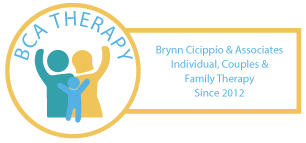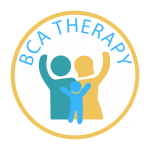Making the Most of Relationships
You know the phrase “Relationships Take Work” but what does that mean specifically for you and your partner?
Every relationship has its unique challenges. Maybe addiction or infidelity are a challenge for you. Maybe its direct and in the moment communication or managing finances. Maybe external factors get in the middle, like careers and in-laws and children.
Whatever it is, these challenges make it hard to invest in our relationships. They make it hard to move close to our partner, listen and support them, and be vulnerable and honest.
Ironically, investing in our relationships (and ourselves) is the exact remedy for these challenges.
Do you remember when you first met your partner? How exciting it was to receive an unexpected call or special surprise? How nice it was to hear they are thinking of you? How good it felt to return those sentiments?
During that time, would you also say you were being pretty good to yourself? It was important impress this person, to be deeply connected to them, so you made sure you put your best foot forward.
Why did that stop? When did it become too hard to invest in ourselves and in our relationships?
To help you get back on track, here are some ideas and tips to make the most of your relationship:
- Pick one thing that you can do every day that makes you feel good. Drink plenty of water, move your body for 30 minutes, listen to a motivating podcast, cook a healthy meal, read a funny novel. Do one thing every day that makes you feel good. It will not only relax you, but it will increase your ability to tolerate stress, execute patience, and give you a little feel-good dopamine release.
- Look for opportunities to turn toward your partner. Pay attention to all the times you may roll your eyes, sigh heavily, or mumble some not so nice words under your breath. Imagine every time you do this a little brick is placed on the wall that is building between you and your partner. Instead, use this as a chance to strengthen your relationship. When you want to sigh heavily, you may choose now to say “I’m not understanding your choice. Can you tell me more?” When you mumble under your breath, perhaps “It may not have been your intention, but that hurt my feelings” would work better. When you reach for the phone to text a friend to complain, I would imagine “I need your help right now” would go further.
- Find time to wow and woo. Remember those first several weeks or even months of dating, when everyone was out to impress and win over one another? You can still make that happen! Leave a note of appreciation, pack a lunch, make a random call during the work day to let your partner know you are thinking of them, laugh and have fun together. Here is a list of 50 ways to show you.
- Create deep and meaningful conversations. Some couples enjoy listening to podcasts and discussing their thoughts, others prefer to have conversation prompts (answering thought-provoking questions), and some prefer to watch moving films together and then analyzing. All of these activities enhance your relationship by creating a connection, spending time together, and challenging your way of thinking and communicating. Its impossible to know every single thought your partner has so why not take advantage of these new ways of relating.
If you are reading this list and saying to yourself, this is easier said than done OR my relationship is nowhere near ready for this OR I don’t even know if I want to make the most of my relationship, its ok. Every relationship is unique and moves and grows at various speeds. Use this list to help yourself set goals instead. Perhaps your goal is to invest in yourself over the next 90 days. Maybe its to talk with a professional to see if you can build enough trust in your relationship to turn towards your partner. If you are not in a place to take action, start by creating a vision for your relationship.
Learn MoreA Life of Gratitude
Have an attitude of gratitude. Be grateful every day. The struggle ends when gratitude begins. How do we form a life of gratitude?
What exactly is gratitude and why do you need it?
Synonyms for gratitude include appreciation, thankfulness, acknowledgment, and recognition. It can be an expression or an emotion. It is something we can feel and something we can convey. It doesn’t cost a thing and can have unlimited dividends.
Gratitude can occur in a brief moment or can be a daily approach to life. It can come naturally and you can also train yourself to experience gratefulness at any time, regardless of what is happening around you.
Since the 1990’s many positive psychologists have studied the influence and importance of gratitude. There is no doubt that gratitude is important.
Here’s why:
Gratitude creates a focus on abundance, not lack of. By being aware of what is present and available in your life, you are less likely to approach the world and your relationships, from a place of desperation and anxiety and frustration.
Believe it or not, but gratitude can boost your immune system, improve sleep, and lower blood pressure.
I think you can agree that it feels good to be grateful. Its not going to harm you, or anyone else, in any way.
Because gratitude feels good, when we are rooted in gratitude we increase our experiences of positive emotions such as joy, happiness, optimism, and pleasure. Who doesn’t want more of that?
What opportunities do you have, every day, to keep yourself rooted in gratitude?
Learn MoreEmpowHER Summer Program 2019
EmpowHER Summer Program is coming in 2019 for girls entering 6th-8th grades.
We know that as parents you naturally want the best for your daughter: strong friendships, academic and extracurricular success, and for her to feel confident in herself and her abilities.
We also know that self-esteem can start to drop drastically during the middle school years due to stressors such as peer relationships, school pressures, messages communicated by the media, and other factors that can be barriers to healthy self-esteem. We recognize how fragile AND resilient self-concept is at this time for young girls.
With this in mind, we created EmpowHER, a 2-week Therapeutic Summer Program for girls entering 6th-8th grade.
By starting early, we are taking proactive measures to ensure that your daughter has the right tools to manage stress, have healthy relationships, critically engage with media, and value herself.
We know that if we empower her now, there will be no limits to what she can accomplish.
Each day of our program is specifically designed to help your daughter practice the tenets of C.O.N.F.I.D.E.N.C.E.
Celebrate Self
Overcome Fear
Nurture Friendships
Find Her Voice
Increase Self-Awareness
Discover Authentic Self
Empower Others
Navigate School Stress
Communicate Feelings
Enhance Relationships
We are very eager and excited to bring this opportunity to the young women of our community. We look forward to serving your daughters through this highly structured, therapeutically and educationally based program. This is an incredible opportunity to get a head start not only on the school year, but on the rest of her life!
Click here for more information on the EmpowHER Summer Program
Learn MoreThe Top 5 Lies of Recovery
When people first step into a world of recovery, there can oftentimes be an overwhelming amount of information, coming from all different directions, some contradictory, and all well-intended. Here are the most common and often misinterpreted beliefs developed in those early stages of recovery. We are calling them The Top 5 Lies of Recovery:
5. Nothing is better than being in recovery Of course being sober and living a well balanced and healthy lifestyle is the ultimate goal. This statement is often misinterpreted and leaves people feeling as if there will be no hard days, that everything will be glorious once they put down the drug or drink. That’s the lie. Recovery is hard work. Sometimes it is boring. There are many challenges. Not everyone will be supportive. What this lie should say: living a life in recovery is going to be hard and challenging and wonderful and peaceful and it will be worth every bit of energy you pour into it.
4. I can’t make any big decisions for one year Many individuals who find recovery supports through the AA and NA community will receive this directive. Don’t make any changes or do anything drastic until you are sober for 12 months. The problem here is that in order to maintain sobriety and to invest in recovery for an entire you, you HAVE to make serious and big changes. You should probably end that abusive relationship; you should probably secure full time work; you should probably file for custody or visitation with your children. Why? Because these are all healthy things to do. What this lie should say: Its ok to make big decisions as long as they are healthy and you are not acting on pure impulse.
3. I must tell myself daily “I am an alcoholic” Again, this is another common occurrence within the AA and NA meeting rooms. Hi, my name’s X and I’m an alcoholic. Sounds true, right? What could be wrong with that? Here’s the issue – when we define ourselves by only one characteristic it places limits on other areas of our lives. What if you told yourself, and others, I am heart disease? How would they perceive you or treat you? How would yo feel about yourself? How would this limit other areas of your life? Try switching it up just a little and instead say Hi, I’m X and I have a booming personality, alcoholism, a great work ethic, diabetes, and an incredible sense of humor. How does that feel? What this lie should say: You have experienced great struggles as a result of your addiction and that is not the only thing that defines who you are. Don’t forget all your good parts.
2. This is my disease and I’m the only one who can change it Yes it is true that no one else can physically stop you from ingesting addictive substances or physically change the composition of your brain or alter the way you think or believe. However, this doesn’t mean the work of being in recovery falls solely on your shoulders. There are many people in the world who want to help you and who are able to help you: friends, family, coworkers, mentors, religious leaders, therapists, counselors, neighbors, teachers, etc… What this lie should say: Its your choice to live a life in recovery and you don’t have to face it alone.
AND THE NUMBER ONE LIE IN RECOVERY…
1. I have to be selfish to protect my recovery There is no way possible for a person to live a healthy and balanced life, have fulfilling relationships, and experience joy and gratitude if they are selfish. Being selfish means that you hurt other people to get what you want; your needs are more important than another’s; other peoples’ opinions don’t count; there is no consideration for someone else. If you intend to not be just sober but to live in recovery, there is no room for selfishness. What this lie should say: Being in recovery will require you to make healthy, yet challenging decisions, that you have not done before. Your recovery needs to be a priority in order for the rest of your life to work out.
USE THIS LIST TO DOUBLE CHECK YOUR APPROACH TO
RECOVERY AND STAY FOCUSED!

